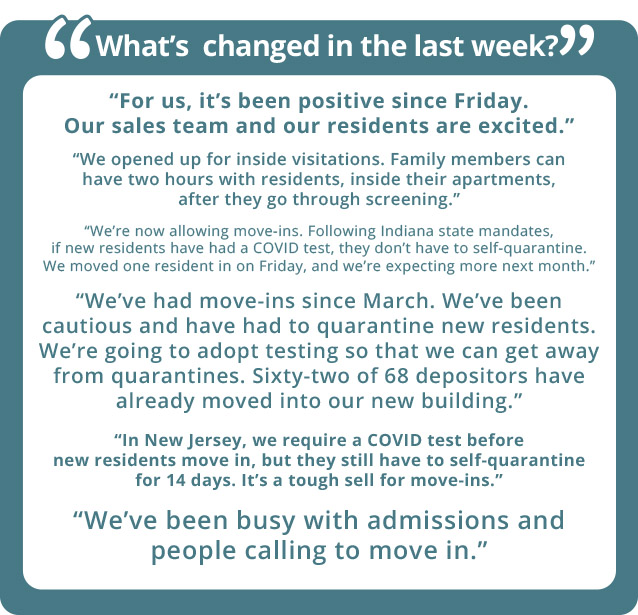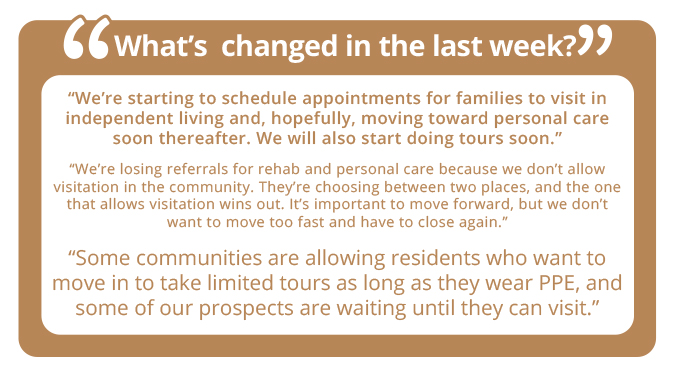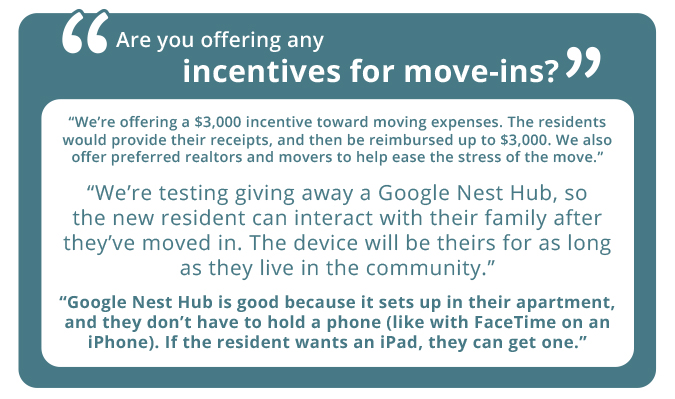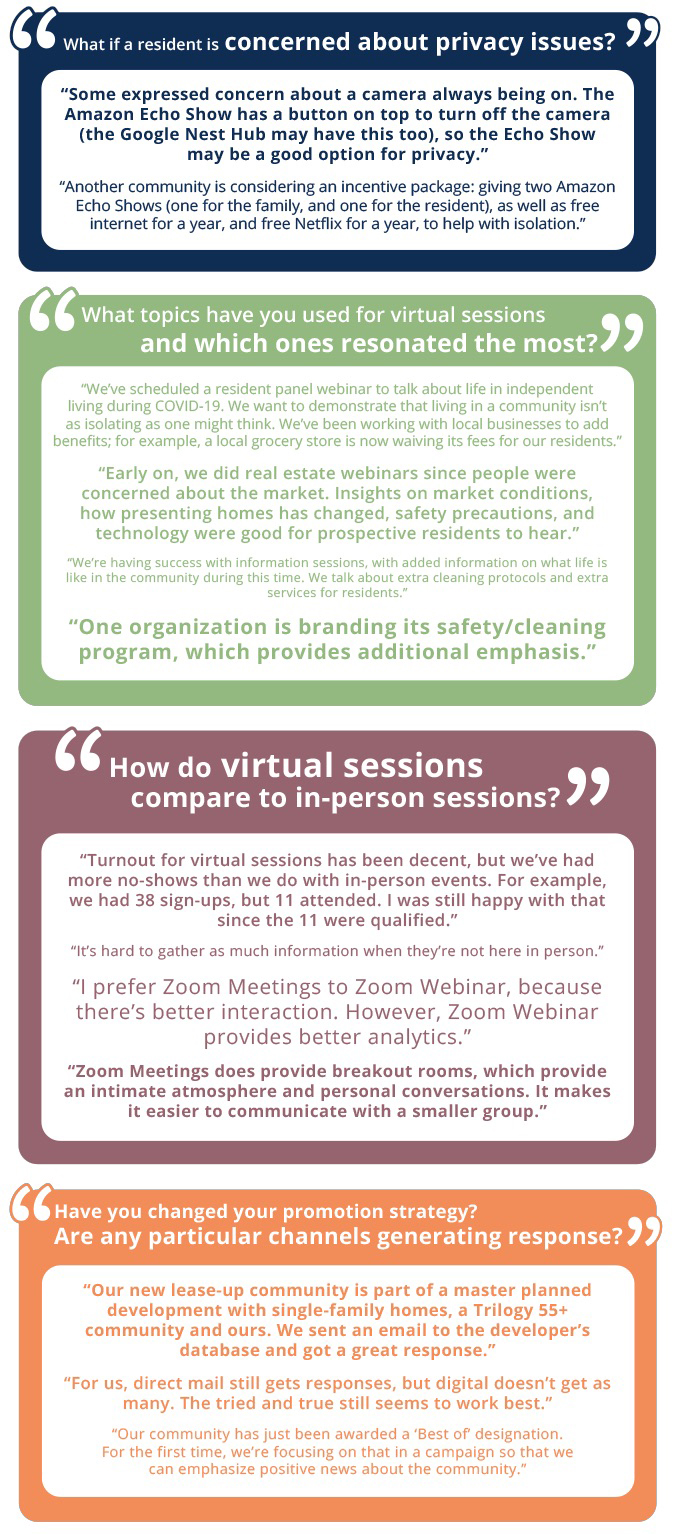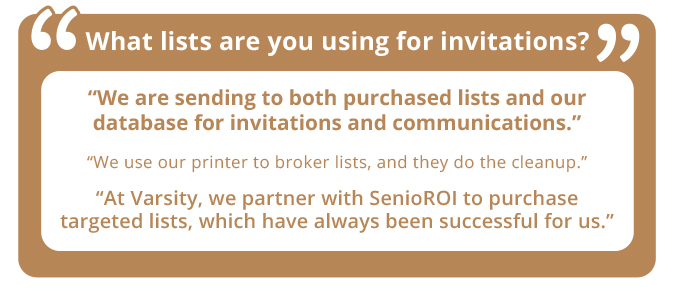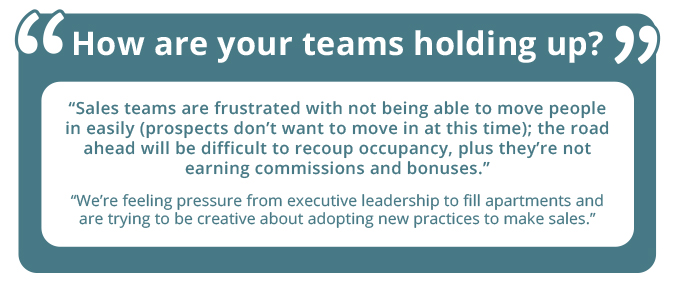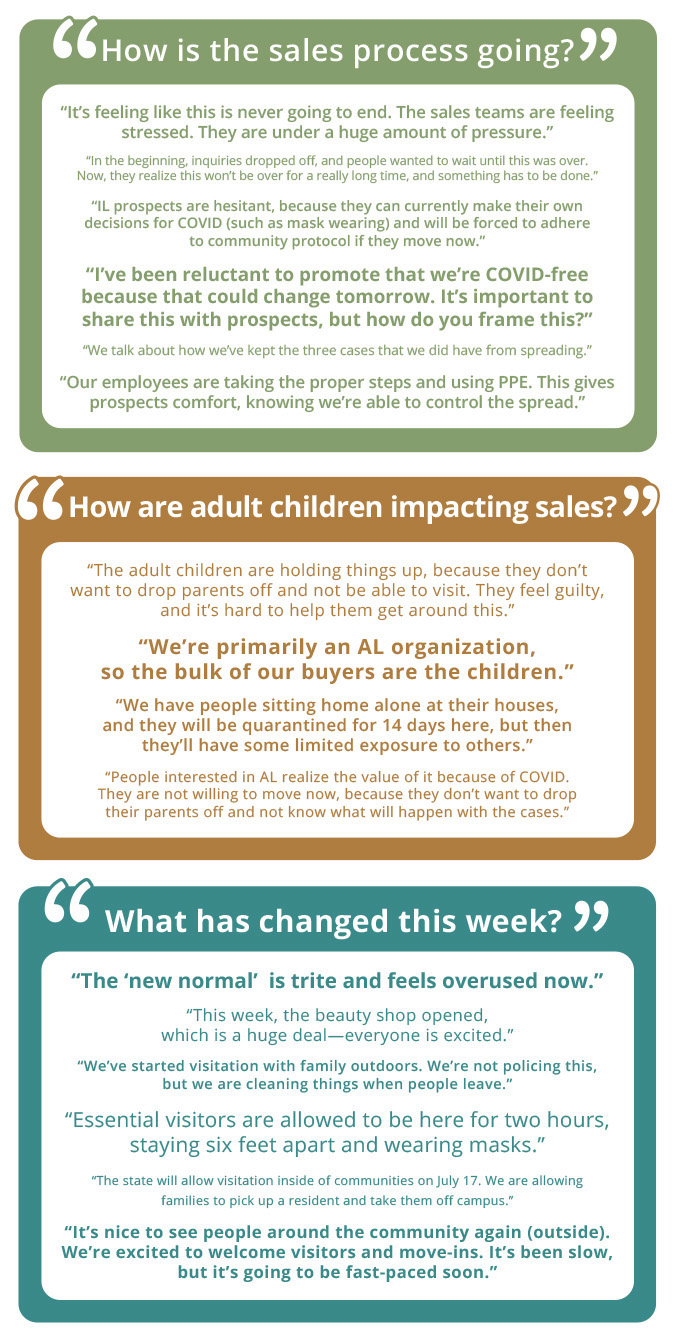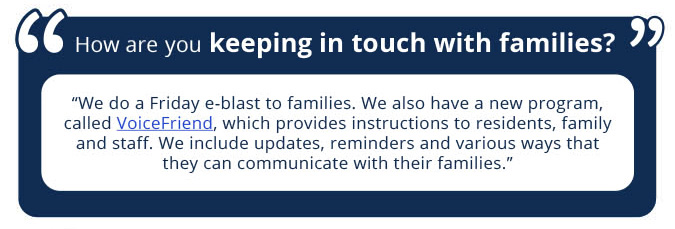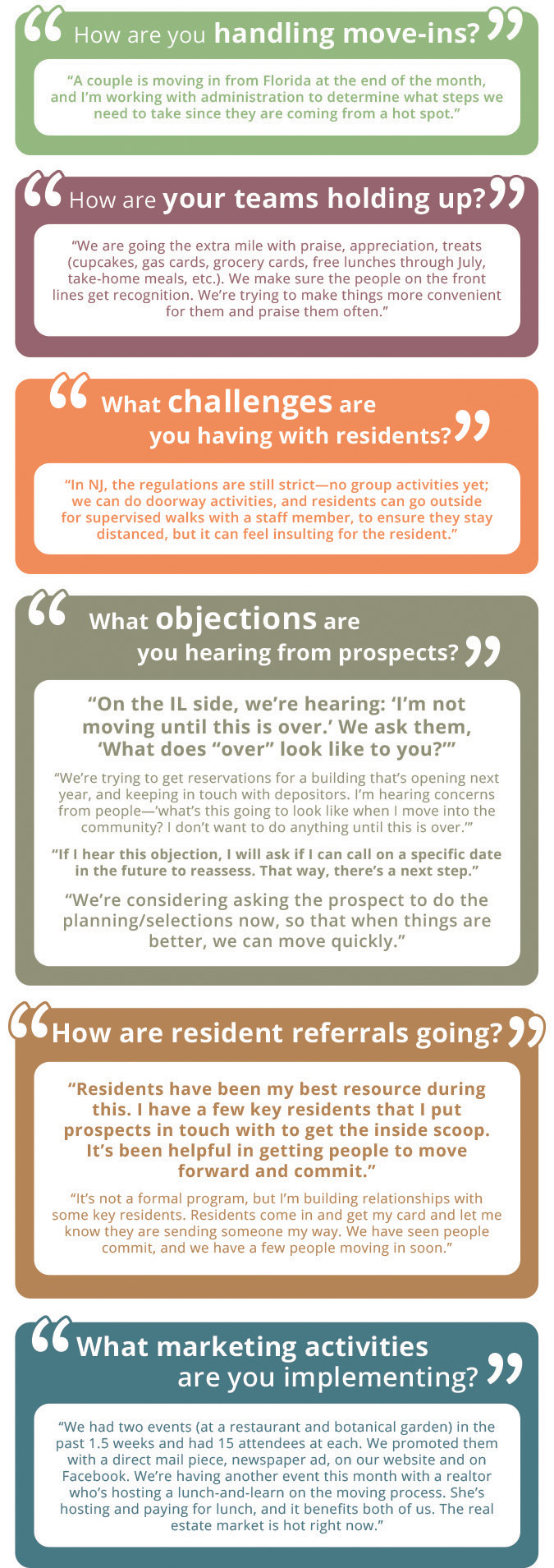At our weekly sales and marketing roundtable, Varsity team members Cory Lorenz, Media Director, and Cara Stefchak, Senior Social Media Strategist, joined us to share their thoughts on social media and digital media use during the pandemic.
Check out the highlights below. Please also join us for our next sales and marketing roundtable next week!
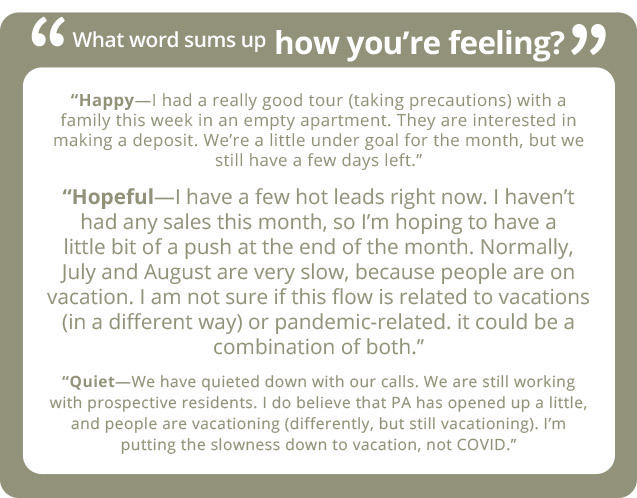
Thoughts on social media from Cara Stefchak:
Hello, everyone! Last time I joined you, I talked about content creation and brainstorming around what makes good content and best practices. I wanted to keep it more informal this time. I wanted to address some things I saw in last week’s roundtable—activities that I thought would make great social content.
- Think about how a video tour or other event can be leveraged on social
- I encourage you to work with whomever is filming and editing to get multiple deliverables out of a project. Engagement falls off at the two-minute mark for Facebook content, and one minute for an Instagram post. Always look at what your video is—how you can slice and dice it in different ways to provide you with legs on social media.
- Design for sound off. We always encourage people to keep in mind that viewers may have their sound off. If someone is narrating the tour, include captions and include your logo early in the video to help communicate your message.
- Two minutes is the longer end of things. Really, you have probably just a few seconds to get your audience’s attention. With a community tour, you probably have more leeway, but it’s still a good idea to catch their attention in the first few seconds to get them to hang on a little longer.
- Question: How do you upload a longer video?
- Answer: If you upload a video that is longer than one minute to Instagram, it will prompt you to go directly to Instagram TV. It will sense that it is too long for the feed, and that it should go to Instagram TV.
- Question: Can you add captions to an iPhone video?
- Answer: You can’t do Instagram Live or Facebook Live with captions—you have to add them post-filming. Facebook has smart captioning, and it might be able to detect your voice, but I would still go back through and make sure everything is correct.
- Virtual events make great social content—whether it’s bingo, or happy hour, or having folks share a meal in their room.
- Always try to remove as many barriers as possible for participation.
- Prepare for the event in advance (provide the cards, markers, and step-by-step directions for logging on) to make it as user-friendly as possible.
- Snap a photo of care packages/prizes outside doors, and share on social media channels. Doing so shows that, even though there’s social distancing, your teams are doing their best to keep residents engaged.
- Always try to remove as many barriers as possible for participation.
-
- Question: Do you keep the activity in small groups of 5 or 6 or a bigger group of 30?
- Answer: Smaller might be helpful depending on how much participation you anticipate. You can communicate more easily that way and have more back and forth. When you get in those larger Zoom meetings, it’s hard to jump in and speak up. Smaller breakout groups are definitely a nice idea.
- Tip: It doesn’t have to be: “We need to do something for social content.”
- Question: Do you keep the activity in small groups of 5 or 6 or a bigger group of 30?
A lot of things you’re already doing. Ask yourself: What activities do we have that could be nice to capture and share out on social? It’s a smart way to show people that life is going on, and life is still great in the community. It’s always nice when you can share a virtual event. It gives an impression of vitality and vibrancy.
- What virtual events are you doing right now?
- We’ve posted some of our activities on Facebook—short programs with people exercising in the courtyard.
- One community wanted to have a celebrity chef do a cooking demonstration, so they sent ingredients to those who RSVPed. We’re still working on setting it up
- What moments are coming up that you could build an event around?

September 16 is National Play-Doh Day. Maybe artists can create with Play-Doh. It’s an excuse for something fun. There’s never a shortage of those interesting holidays that you’ve never heard of.
Grandparents Day: What a time to highlight intergenerational connections.
Instead of having grandchildren visit, grandparents can make gifts for grandchildren, and they could be delivered.Grandparents can share advice for grandchildren, and it can be shared on social.
- Is anyone addressing COVID concerns directly in social content? If so, what response have you gotten?
- I follow a lot of clients and I haven’t seen much lately.
- We’ve been sharing our COVID status and policies via Constant Contact. People are sharing how grateful they are that we are taking care of the community. We’ve been COVID-free since June 1.
- Have you purposely not put that content on social? No, we just haven’t thought about it, but I guess we also haven’t wanted to brag about being COVID-free because that could change tomorrow.
- Question: A lot of people I know had their Instagram accounts hacked. How can we stop that?
- Answer: Update your passwords. (Since our personal Instagram is our gateway to community sites, it’s even more important to make that more secure.) Another person said, “I recently had my accounts hacked. There’s a link you can use to report to Facebook that this isn’t you.”
Cory Lorenz presented an Enquire data slide showing recent media trends:

Cory: Social media inquiries are up year to year, and email is up huge. Conversely, direct mail is taking a hit, and out-of-home and paid referrals are way down. We’re curious whether this looks accurate to you for your specific communities. Are you seeing the same trends?
- Internal referrals are down a little, but we’re working on a new testimonial campaign
- We’re getting more leads from the internet and email; direct mail has flattened out.
- We’ve cut way back on direct mail and advertising—it’s expensive in big-city markets. Most of my referrals are coming fromfriends, family and other people who are aware of the community.
- We are getting more internet advertising referrals, and paid professional referrals are down. Since you can’t have events anymore, that’s one reason direct mail is taking such a hit.
Please join our next roundtable discussion on Thursday, August 27, at noon ET.
For log-in information, please contact DDunham@VarsityBranding.com.

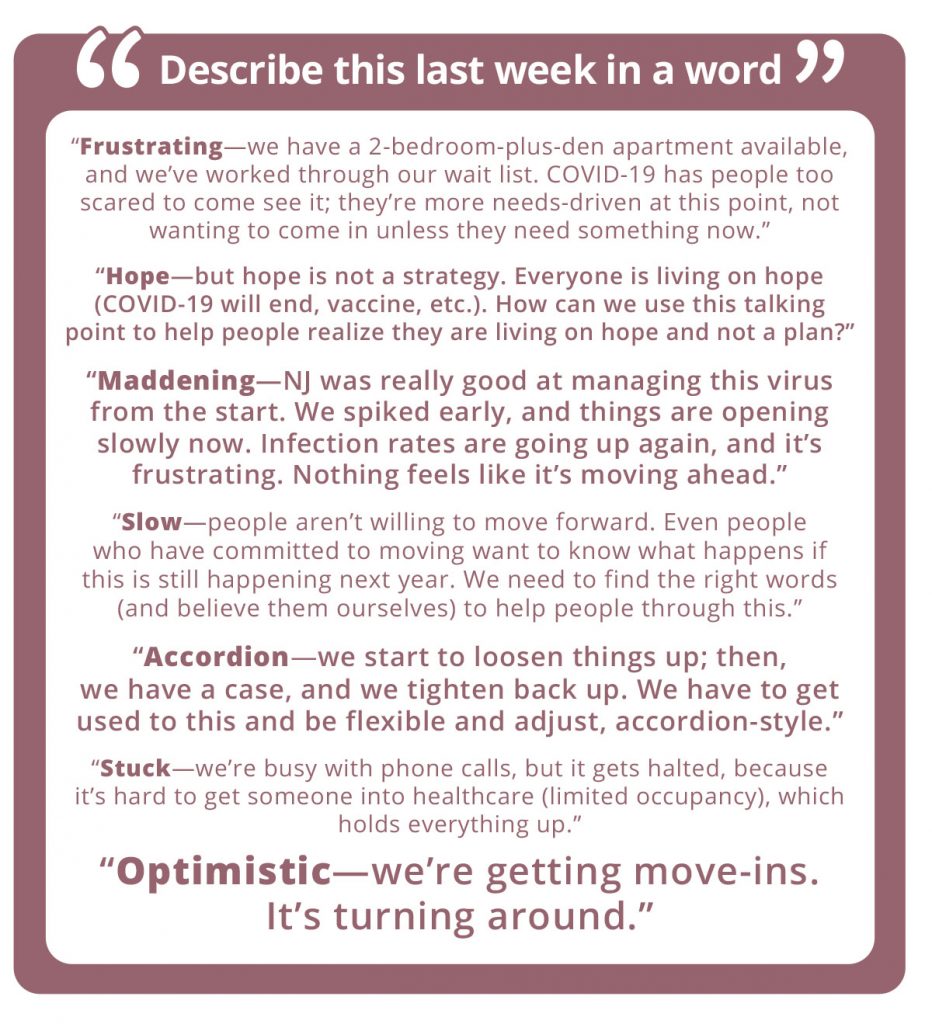
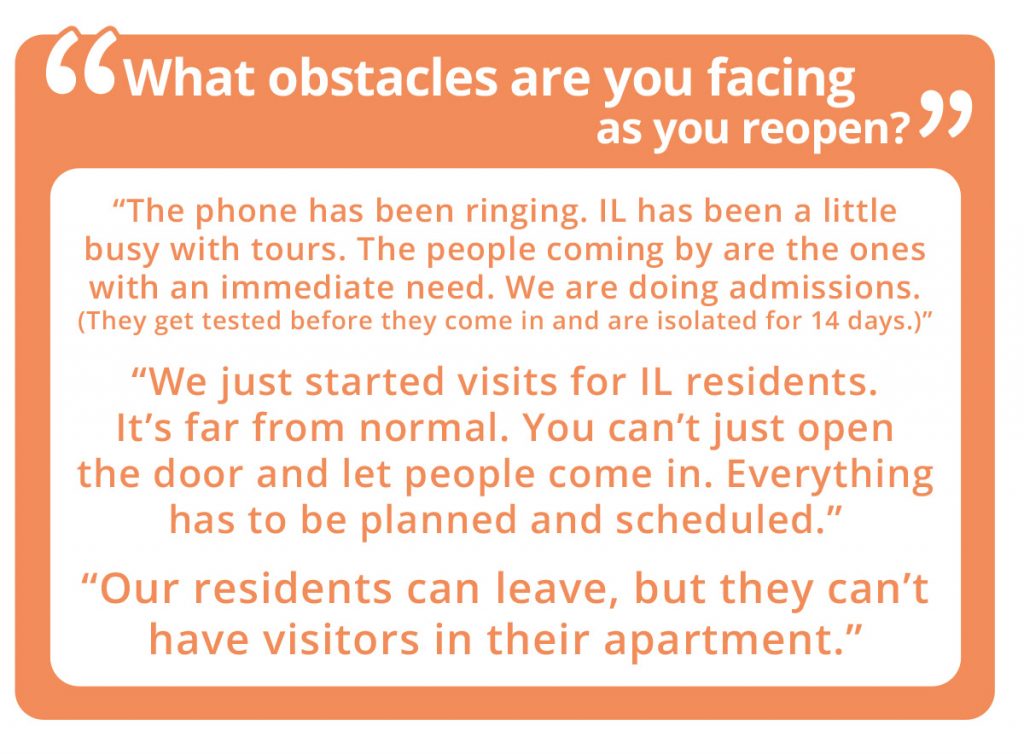
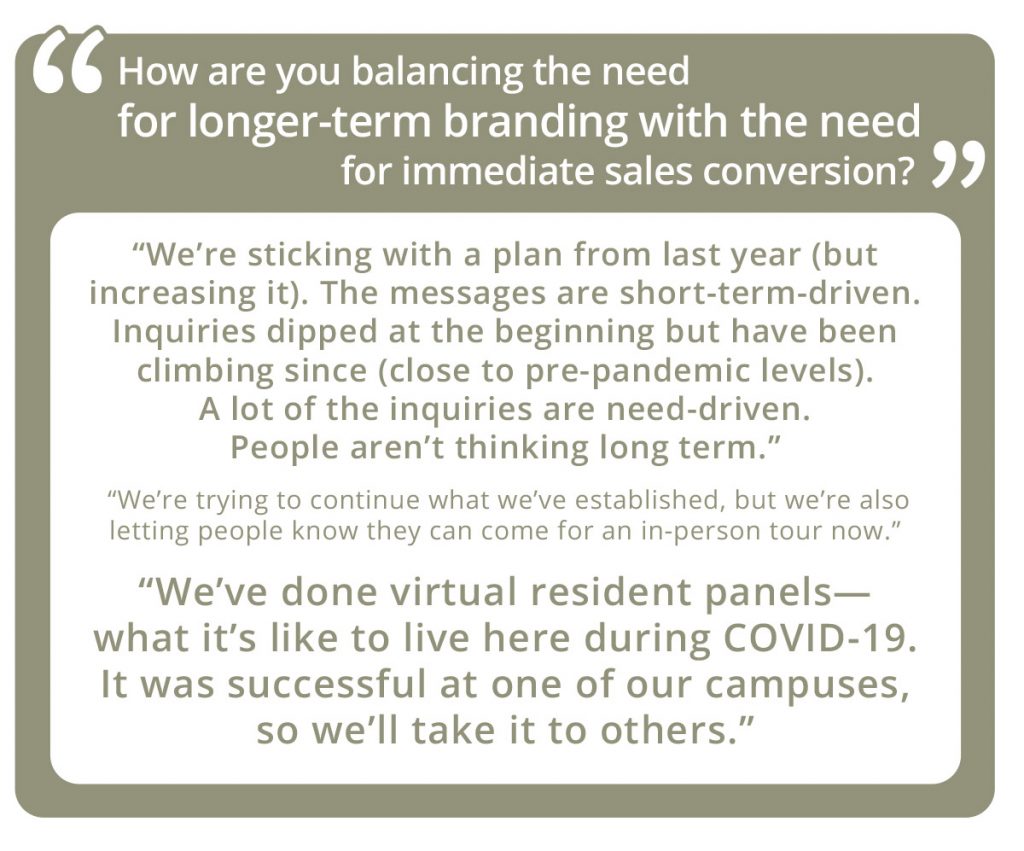
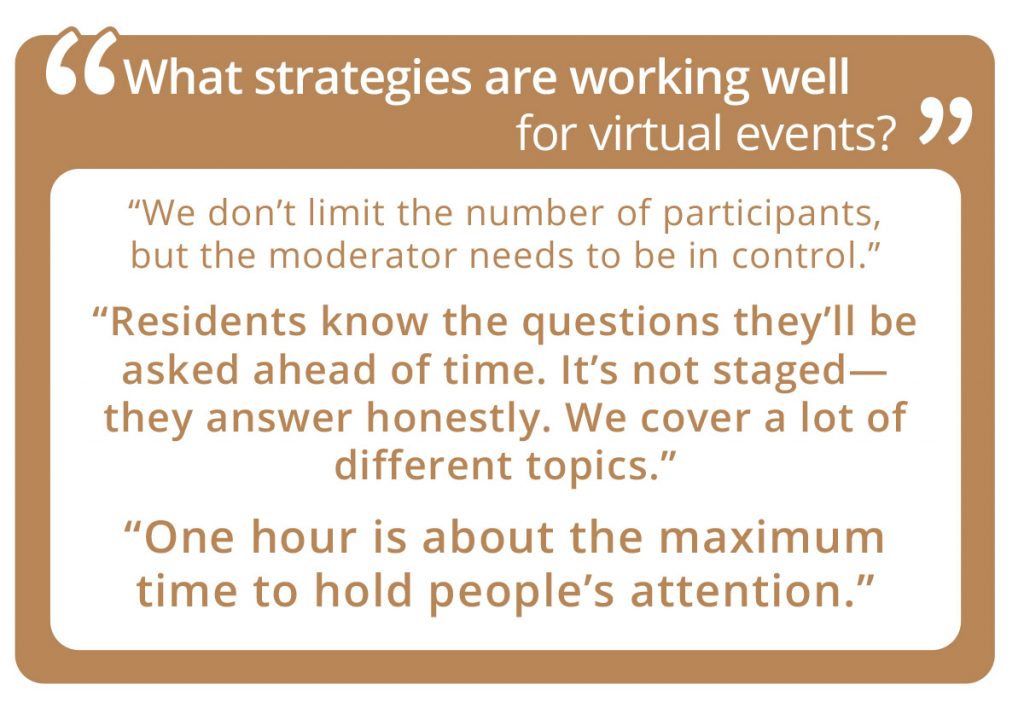 J
J